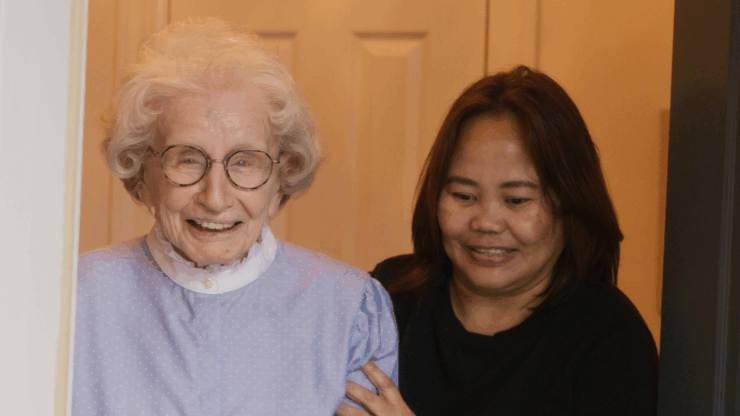
7 Signs That It May Be Time for Long-term Care
Long-term care is a term that encompasses a variety of services that are designed to meet someone’s personal or medical needs and who are unable to perform a variety of essential duties on their own.Long-term care is provided in different places by different caregivers, depending on a person’s needs. It may be difficult to know how to identify signs that may signify it’s time for long-term care and it may even be more difficult to have a conversation with your loved one.
With over 19 years of experience, LifeWorx specializes in providing in-home elder care for thousands of families. There are several reasons why your loved one may need long-term care and today, we would like to share with you a few warning signs of when long-term care is needed:
- Personal Care is Being Neglected
- If you notice a decline in personal care or hygiene, this can be a sign that long-term care might be needed. When poor hygiene arises, it is typically the result of a larger medical problem:
- Physical difficulty bathing
- Depression
- Progression of neurological illness
- If you notice a decline in personal care or hygiene, this can be a sign that long-term care might be needed. When poor hygiene arises, it is typically the result of a larger medical problem:
- Recent Accidents
- Accidents and medical scares are indicators that your loved one may need additional help. Falls are unfortunately a common incident among the elderly and those recovering from extensive surgery. These incidents, especially if they are recurring are high indicators that in-home help may be necessary.
- Change in behavior – aggression, anger, social isolation
- The changes that many older adults experience in the aging process can lead to a loss of self-esteem and they may lose a clear image of who they are at this time in their lives. A loved one may exhibit major changes such as becoming socially isolated, aggressive behavior, hitting, crying, or frustration – could need ongoing monitoring and treatment provided by elder care professionals.
- Increasing difficulty managing daily activities
- With age, daily activities can be harder to manage. Sometimes referred to as “activities of daily living” or ADLs, these are the daily activities that we often do without thinking – but to an elderly person, these same activities might be more difficult than before. These activities include:
- Dressing
- Bathing
- Shopping
- Medication Management
- Laundry
- Cleaning
- With age, daily activities can be harder to manage. Sometimes referred to as “activities of daily living” or ADLs, these are the daily activities that we often do without thinking – but to an elderly person, these same activities might be more difficult than before. These activities include:
- Increased Medical Needs
- If an individual is living with a progressive physical or cognitive condition, they may eventually require medical assistance that goes beyond the care that a caregiver can provide. Some examples of increased medical needs that a long-term home provider can assist with include the following:
- Medical care that is difficult to provide
- The use of medical equipment (oxygen tank, wheelchairs, etc.)
- Medication distribution and more.
- If an individual is living with a progressive physical or cognitive condition, they may eventually require medical assistance that goes beyond the care that a caregiver can provide. Some examples of increased medical needs that a long-term home provider can assist with include the following:
- Poor Nutrition
- A well-balanced and nutritional diet is vital for our healthy survival regardless of age. If you start seeing your loved one go through sudden weight loss or weight gain in a short period of time, it might indicate:
- A loss of interest in food due to changing appetite
- Difficulty preparing food due to cognitive decline.
- Loss of ability to drive and shop for food.
- A cognitive condition that may have injured the part of the brain that controls eating.
- A well-balanced and nutritional diet is vital for our healthy survival regardless of age. If you start seeing your loved one go through sudden weight loss or weight gain in a short period of time, it might indicate:
If your loved one is displaying any of the seven major signs listed in this article, it may be time to sit down with your family and care team to discuss these issues and determine if you need long-term care. We suggest you contact our in-house long-term care administrator so we can help find a solution that best fits your family’s individual needs or have a look at our Long-Term Care guide.
Find your peace-of-mind.
Explore LifeWorx’ in-home elder care services.

















